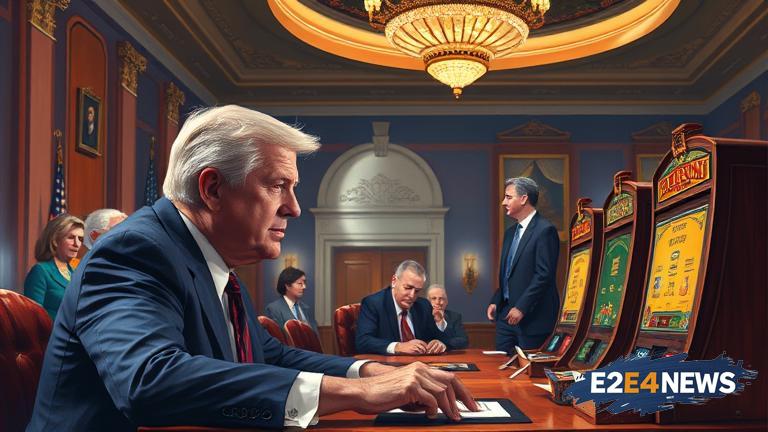In a recent legislative move, Senate Republicans successfully blocked an attempt to repeal a substantial tax hike targeting professional gamblers. This tax increase was initially introduced as part of a broader budget bill, which included various revenue-raising measures. The tax hike specifically affects professional gamblers by increasing the tax rate on their winnings, drawing criticism from advocates who argue it unfairly burdens individuals who rely on gambling as their primary income. Proponents of the repeal argued that the tax increase creates a disproportionate financial strain on professional gamblers, potentially forcing some out of the industry or driving them to operate underground. They also contended that the tax hike could lead to a decline in state and federal revenues from legal gambling activities, as fewer individuals would report their winnings. On the other hand, Senate Republicans defended their decision to block the repeal, emphasizing the importance of maintaining a stable revenue stream for public services and infrastructure projects. They argued that the tax increase is a necessary measure to ensure that all individuals, including professional gamblers, contribute fairly to the tax base. The debate highlighted broader discussions about tax fairness, with some lawmakers questioning whether professional gamblers should be treated differently from other professionals in terms of taxation. Critics of the tax hike also pointed out that it could have unintended consequences, such as encouraging illegal gambling activities and undermining the integrity of the legal gambling industry. Despite these concerns, Senate Republicans remained steadfast in their opposition to the repeal, signaling their commitment to upholding the current tax structure. The blockage of the repeal effort has been met with disappointment from professional gambling associations and advocacy groups, who had hoped for a more favorable tax environment. Moving forward, the issue is likely to remain a contentious topic in future legislative sessions, as stakeholders continue to advocate for reforms that they believe would create a more equitable tax system. The outcome of this debate could have significant implications for the gambling industry, both legally and economically, as well as for the broader discussion around tax policy and revenue generation. For now, professional gamblers will need to navigate the increased tax burden, potentially altering their business strategies and financial planning. The situation underscores the complex interplay between taxation, economic policy, and individual livelihoods, particularly in industries that operate under unique regulatory and financial conditions. As the gambling industry continues to evolve, the tax policies governing it will remain a critical area of focus for lawmakers, industry stakeholders, and the public alike.
